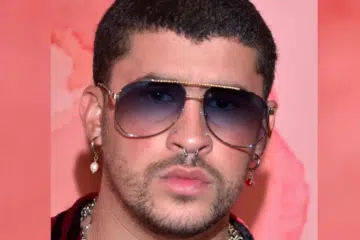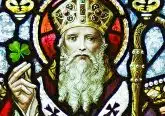City Council resolution calls for parades to be more inclusive

By John Stegeman
The Catholic Telegraph
A local chapter of a gay rights organization was not permitted to march in the 2013 Cincinnati St. Patrick’s Day parade. As a result, most members of Cincinnati City Council backed out of the parade and the story made national headlines.
In early April council took steps to make sure that the Gay Lesbian Straight Education Network, and others covered by the city’s 2006 non-discrimination policy, will be permitted to march in any parade that takes financial incentives from the city. The motion, which passed unanimously, was spearheaded by Cincinnati City Councilman Chris Seelbach.
The motion will effect more than just the St. Patrick’s Day parade. In addition to the St. Patrick’s Day Parade, three other parades receive a 90 percent subsidy from the city, according to Jon Harmon, legislative director for Seelbach’s office. The other affected parades are the Findlay Market Opening Day, the Black Family Reunion and Juneteenth parades.
The text of the motion read in part: “We move that the Administration require all parades receiving a financial subsidy from the City of Cincinnati agree in writing to adhere to the City’s non-discrimination policy throughout their event…”
An attached statement said that the city’s non-discrimination policy covers race, gender, age, color, religion, disability status, marital status, sexual orientation, transgendered status, and ethnic, national or Appalachian regional origin.
The resolution means, at least in theory, that St. Patrick’s Day Parade organizers would have to admit GLSEN and similar groups, or risk their subsidies from the city.
The motion came after GLSEN, which marched in the parade in 2012, was denied permission to march in 2013.
Parade organizers have refused comment except for a press release distributed shortly after the controversy.
“The Gay Lesbian Straight Educational Network participated in last year’s Parade, but did not abide by the Parade’s requirements,” Grand Marshall Chris Schulte wrote. “The Network again this year indicates it will not agree to the “Parade Orders.” Unfortunately, therefore, the Network cannot participate in this year’s Parade. The rules and order apply equally to all.”
But that answer was not satisfactory to Seelbach and others on City Council.
“All corporations that do economic development deals with the City of Cincinnati agree to follow the City’s non-discrimination policy,” Seelbach said in a statement provided to The Catholic Telegraph. “This has been in place for several years. After a controversial, last-minute decision regarding the anti-bullying parade entry GLSEN, Council unanimously agreed to require taxpayer subsidized parades to agree to follow the City’s non-discrimination policy.”
Seelbach’s statement added that the motion does not cover hate speech or prohibit parades from eliminating offensive entires.
“It does, however, ensure discrimination or elimination is not based on race, religion, sex, orientation, ethnic origin or other protected qualities,” Seelbach added.
The St. Patrick’s Day Parade, established in 1967, is a celebration of the patron saint of Ireland, St. Patrick. Schulte noted in the release that groups from both the pro-life and pro-choice side of the abortion debate have been denied permission to march previously for refusing to accept the parade’s rules concerning attempts to advance political agendas.













